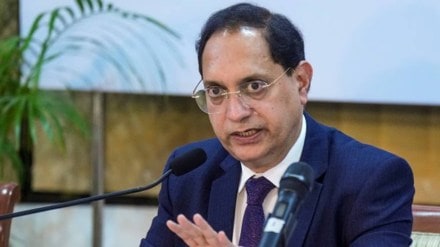Securities and Exchange Board of India (Sebi) Chairman Tuhin Kanta Pandey expressed his displeasure at recurring episodes of outages at exchanges. He added that the regulator will take action after studying the issue.
Speaking to reporters at the Morningstar Investor Summit, he said “There was an issue during July, and now another (referring to the breakdown at the Multi-Commodity Exchange (MCX) . It’s not right that such problems are happening again and again.”
He also empasised that the market regulator’s standard operating procedure has specified action to be taken in case of such incidents.
Among other issues, he said that Sebi is also reviewing the stockbroker regulations 1992 to make them more relevant, simple, and streamlined. It is taking initiatives for simplifying compliance, rationalising regulation, easing investor access, to make markets more efficient, transparent and inclusive.
“We are also mindful of the needs of investors who, despite their rightful ownership, face legacy operational earnings. To address this, we are to allow investors to have those securities transferred to their name. This measure will provide relief to physical shareholders,” he said.
Pandey noted the importance of financial intermediates in ensuring smooth and efficient functioning of financial markets. He also noted the rising importance of high-speed traders. “These institutions such as banks, investment funds, mutual funds, brokers, and distributors, act as vital bridges, between savers and enterprises,” he added.
He explained that today’s marketplace is characterised by high speed, interconnectedness, product innovation and rising retail participation. However, with these advantages come new risks. In such a landscape, market intermediaries are far more than conduits.
Intermediaries contribute to financial inclusion, wealth creation, greater stability and confidence in the market. The capital market in particular depends heavily on their expertise and efficiency to channel investments onto productive sectors, thereby supporting economic growth, innovation, and long-term development.
“We must aim to explore how the intermediaries can step up. The intermediary acts in the interest of the investor, avoiding unfair practices or conflicts. When things go wrong, investors have access to redress,” Pandey said.
If trust is exploited, the market will suffer from lower liquidity, higher costs, and ultimately slower growth. The intermediary sits at the junction of these twotracks, he said.
The rise of algorithmic and high frequency trading (HFT) brings efficiency, but also demands robust risk controls, real-time monitoring, and compliance safeguards. As new products proliferate the market, intermediaries must come with clear disclosures of underlying risks, costs, and business model assumptions.
Regulated entities have been mandated to dissociate from unregulated entities, which provide recommendations on unverified claims on return and performance.
“In today’s markets, culture is the invisible infrastructure that ultimately underwrites investor trust. Regulation is the visible framework that reinforces it,” Pandey said.
